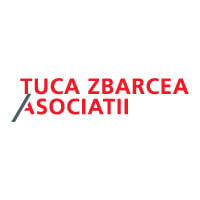
Head of legal and compliance | eMAG


Daniela Cismaru
Head of legal and compliance | eMAG
How do you approach managing legal aspects during periods of instability or crises, and how does your legal strategy align with the broader business strategy to ensure the organisation’s resilience?
A proactive risk management strategy is essential when addressing instability or crisis. Identifying potential legal risks early and developing contingency plans is crucial to ensuring the business remains resilient.
Clear communication channels play a vital role in crisis management, particularly in maintaining open lines of communication with both internal and external stakeholders. Flexibility and adaptability are key abilities in this context. This means being prepared to adjust compliance measures quickly and identify suitable legal solutions to support crisis management effectively.
Our legal and compliance strategy is consistently aligned with the broader business strategy. By staying closely connected with the business and understanding its operational needs, we can help increase sustainability and resilience. Proactivity is another key component of our compliance strategy. By providing legal insights and guidance on new regulations or legislative changes, we enable the executive team to make informed strategic decisions that align with the organisation’s long-term goals.
What emerging technologies do you see as having the most significant impact on the legal profession in the near future, and how do you stay updated on these developments?
I see several emerging technologies poised to significantly impact the legal profession in the near future. First and foremost, Artificial Intelligence (AI) is undoubtedly a “top priority” for business leaders, as well as for legal departments. These technologies are revolutionising legal research, contract drafting and analysis, and even predictive analytics.
Secondly, legal tech platforms and automated tools are continually evolving and becoming increasingly sophisticated. These solutions are streamlining a wide range of legal processes, from case management to document automation. By improving efficiency and reducing the time spent on routine tasks, they allow legal professionals to focus on more complex issues and strategic thinking. Furthermore, when integrated with automation in finance or operational processes, these technologies can provide valuable support to fast-moving businesses.